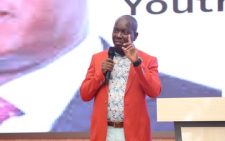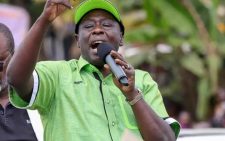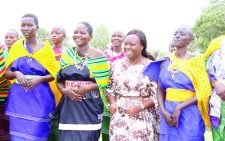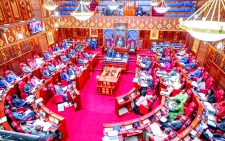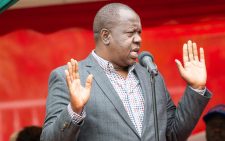Maa community seeks to benefit from national parks

Peter Leshan and KNA
Members of the Maasai community hope to benefit immensely from the Maasai Mara, Samburu and Amboseli National Parks if their proposals to the Building Bridges Initiative will be implemented.
They want a special body to run the multi-billion-shilling tourist facilities and all the revenue handed to host counties to develop infrastructure which would turn around lives of the community.
The community says though Narok and Samburu counties have been getting a share of the revenue, most of it goes to the national government in taxes and tariffs.
Those in Kajiado want Kenya Wildlife Service (KWS) to hand over Amboseli National Park to them to use the money to better their lives.
At a BBI rally in Narok last week, leaders also proposed the creation of Indecent Indigenous Peoples Authority to look into the affairs of the marginalised tribes.
They want a management structure in place of sharing resources generated from establishments previously in Maa land like Nakuru and the larger Tsavo national parks.
They want a share of 25 per cent of revenue generated in the two parks to be annually given to the community as an appreciation for moving out of the land.
“The community was pushed out of the lands where national parks and reserves are. Naturally, the residents should be the main beneficiaries,” says Narok North MP Moitalel Kenta.
He says the Purko clan in Narok, voluntarily vacated more than 4,000 acres for the establishment of Masai Mara National Park, adding that they want more resources to trickle down to aid locals get out of poverty.
The community, he says, because of its conservation of wildlife, continues to wallow in poverty and bear the brunt of human-wildlife conflict, adding that is the reason the agitation for the tourist attractions to be managed by them will not be reversed.
“We want our community to be economically empowered. Local resources should be used to achieve this. There’s no going back this time,” says Kenta.
Apart from the tourism resource, land ownership remains the most contentious issue in Maasai land. The community wants land it lost before and after independence, mostly owned by individuals and multinationals, reverted to it.
Leaders say the community was pushed to semi arid and arid lands where diseases such as malaria and sleeping sickness are prevalent, adding that Maasais want back the fertile highlands and if not possible, they should adequately be compensated.
Thomas Letangule, a former Independent Electoral and Boundaries Commission (IEBC) and who hails from the Ilchamus community in Baringo county, says recommendations from the Truth, Justice and Reconciliation Commission, Ndung’u and Njonjo Land Commission reports had been ignored for many years and hopes BBI will be the final avenue for the Maa community to get justice.
“The Maa was dispossessed of trust land in Oldonyo Ngiro in Isiolo, Laikipia, Nakuru and the expansive Kedong Ranch.
These lands should be immediately surrendered as ways are explored to return others,” he says.
The issue of marginalisation was also raised by leaders from Northern Kenya and Upper Eastern. The leaders rooted for the pure parliamentary system and powerful prime minister noting that it will “end electoral chaos as witnessed in the past general polls”.
Former deputy speaker Farah Maalim said countries that adopted the parliamentary system have recorded high levels of stability and tranquility.
Recommendations read
In the recommendations read out by Mandera Governor Ali Roba, the residents want the County Policing Authority fully established and be managed by counties.
Each county to establish its own county police service. They also want the government to invest in counter-radicalisation measures in the national government and enhance corporation between the two levels of government in counter terrorism measures.
The residents says the County Action Plan should be directly funded by the National government for all the northern counties to protect the country against terror and radicalisation.
The region that has borne the brunt of Al-Shabaab attacks since 2011 has been grappling with how best to deal with the rag tag militia that has been changing tact in the past nine years.
On education, they recommended that infrastructure development for primary and secondary schools as well as teacher management be devolved.
On land, the resident recommended the government should register all community land and ensure that community land registration takes place before any large-scale compulsory acquisition of land takes place.
